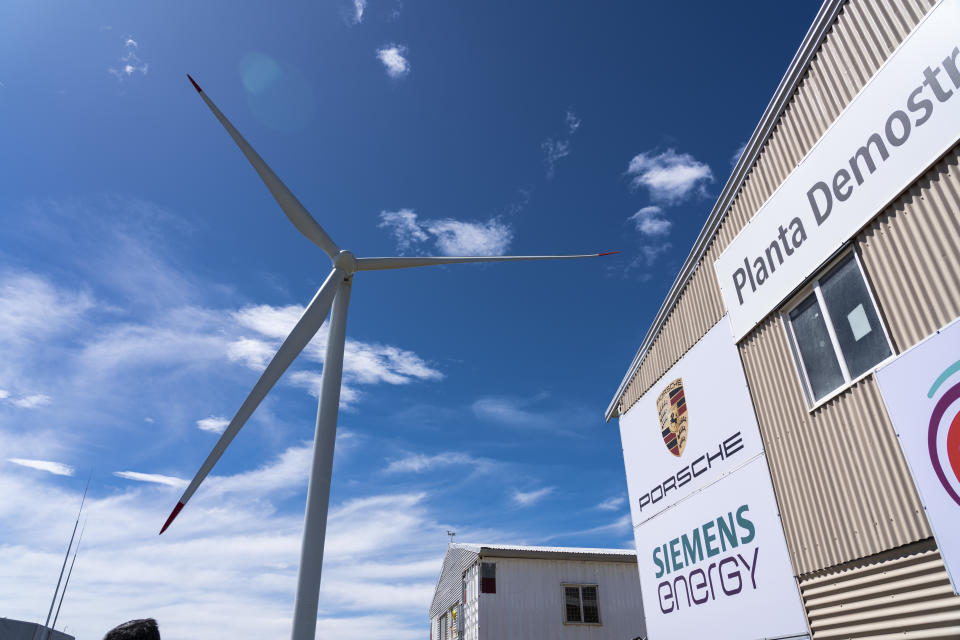Porsche starts production of synthetic fuels at facility in Chile
Porsche has officially commenced production of synthetic fuels at its newly created site in Punta Arenas, Chile.
Porsche executive board members Barbara Frenkel and Michael Steiner were present at the opening. They performed a ceremonial fuelling of a Porsche 911 with the first synthetic fuel produced at the site.

Synthetic fuels – often referred to as eFuels – are made at the Porsche facility from water and carbon dioxide, with the operation powered by wind energy. It means that internal combustion engined cars can be run in a close to CO2-neutral way when using this new fuel.
Frenkel said: “Porsche is committed to a double-e path: e-mobility and eFuels as a complementary technology. Using eFuels reduces CO2 emissions. Looking at the entire traffic sector, the industrial production of synthetic fuels should keep being pushed forward worldwide. With the eFuels pilot plant, Porsche is playing a leading role in this development.”
#Porsche and international partners are working with the Chilean operating company Highly Innovative Fuels to start the industrial production of synthetic fuels.https://t.co/1mzlnyDoNU pic.twitter.com/MYOieHg3Ny
— Porsche GB (@PorscheGB) December 21, 2022
An initial pilot phase will see the site produce around 130,000 litres of eFuel per year. The fuel created will be put to work in ‘lighthouse projects’ such as the Porsche Mobil 1 Supercup and in the firm’s Experience Centres. After this pilot phase, production will be scaled up to a projected 55 million litres per year by the middle of the decade. Porsche says that two years later this capacity could hit 550 million litres.
Porsche chose the south of Chile as the location for the facility due to its windy conditions. In fact, the wind blows for around 270 days a year, allowing the wind turbines powering the plant to operate at full capacity for much of the time. The location of Punta Arenas close to the Strait of Magellen and the port of Cabo Negro means that eFuels can be transported in the same way as traditional fuels and distributed using existing infrastructure.

 Yahoo News
Yahoo News 
